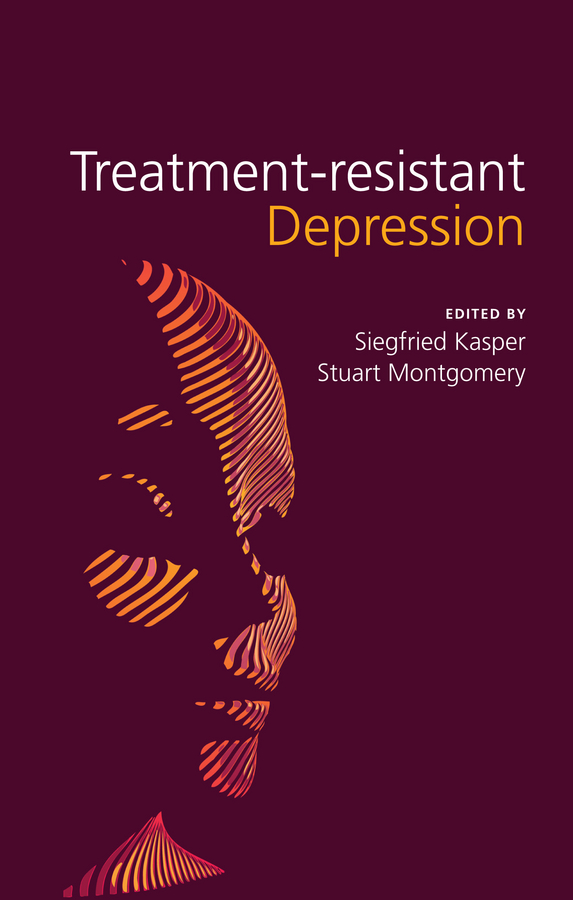Электронная книга: Montgomery Stuart A. «Treatment-Resistant Depression»

|
Successful management of patients with treatment-resistant depression is going to require a thorough understanding of the biological basis for both the depression and its failure to respond to standard treatments. This book clearly and succinctly summarizes the latest scientific research and its applications in clinical practice. A first step is a clear definition of what constitutes treatment-resistant depression so that clinical trials and other studies are using common criteria, enabling comparison and meta-analysis of their outcomes. The opening chapter reviews definitions and predictors of originating from different fields and discusses their usefulness in clinical practice and clinical research. The next chapter proposes a new definition, adapting terminology from medicine. Biological classification requires identification of genetic risk factors: with gene variants accounting for 50% of the variance in the clinical outcomes of antidepressant treatments this is clearly a fruitful area of research. Chapter 3 describes several genes already associated with treatment-resistant depression and, while further work is needed to translate findings into clinical recommendations, predicts that genetic prediction of TRD could became a widespread clinical reality within a few years. Most patients with TRD will be treated pharmacologically and three chapters review the latest evidence for pharmacological best practice, including switching strategies for antidepressants, the role of antipsychotics and augmentation strategies to complement lithium. There are two major alternatives to pharmacotherapy: neuromodulation and psychotherapy. The brain intervention chapter summarizes clinical research and experience with electroconvulsive therapy, transcranial magnetic stimulation, vagus nerve stimulation, deep brain stimulation and magnetic seizure therapy. The final chapter reviews the literature pertaining to the effectiveness of various forms of psychotherapy in patients who have not responded to antidepressant pharmacotherapy, revealing that patients who have not responded to one or two trials of antidepressant medication have a 30%-50% chance of responding to a focused psychotherapy. It proposes indications for psychotherapy in TRD and summarizes general therapeutic principles. Издательство: "John Wiley&Sons Limited"
ISBN: 9781118556740 электронная книга Купить за 4210.66 руб и скачать на Litres |
Другие книги схожей тематики:
| Автор | Книга | Описание | Год | Цена | Тип книги |
|---|
См. также в других словарях:
Treatment-resistant depression — or refractory depression is a term used in clinical psychiatry to describe cases of major depressive disorder that do not respond to at adequate courses of least two antidepressants. [cite journal |author=Wijeratne, Chanaka, Sachdev, Perminder… … Wikipedia
Treatment for depression — Depression, for the purposes of this article, refers to the mental disorder known as major depressive disorder. This kind of depression is a recognised clinical condition and is becoming a common condition in developed countries, where up to 20%… … Wikipedia
Management of depression — Depression, for the purposes of this article, refers to the mental disorder known as major depressive disorder. This kind of depression is a recognized clinical condition and is becoming a common condition in developed countries, where up to 20%… … Wikipedia
Treatment of bipolar disorder — This article is an expansion of a section entitled Treatment from within the main article: Bipolar disorder The emphasis of the treatment of bipolar disorder is on effective management of the long term course of the illness, which can involve… … Wikipedia
Depression (mood) — Albrecht Dürer s engraving Melencolia I, ca. 1514 Depression is a state of low mood and aversion to activity that can affect a person s thoughts, behaviour, feelings and physical well being.[1] Depressed people may feel sad, anxious, empty,… … Wikipedia
Extensively drug-resistant tuberculosis — (XDR TB) is a form of TB caused by bacteria that is resistant to the most effective anti TB drugs. It has emerged from the mismanagement of multidrug resistant TB (MDR TB) and once created, can spread from one person to another.One in three… … Wikipedia
